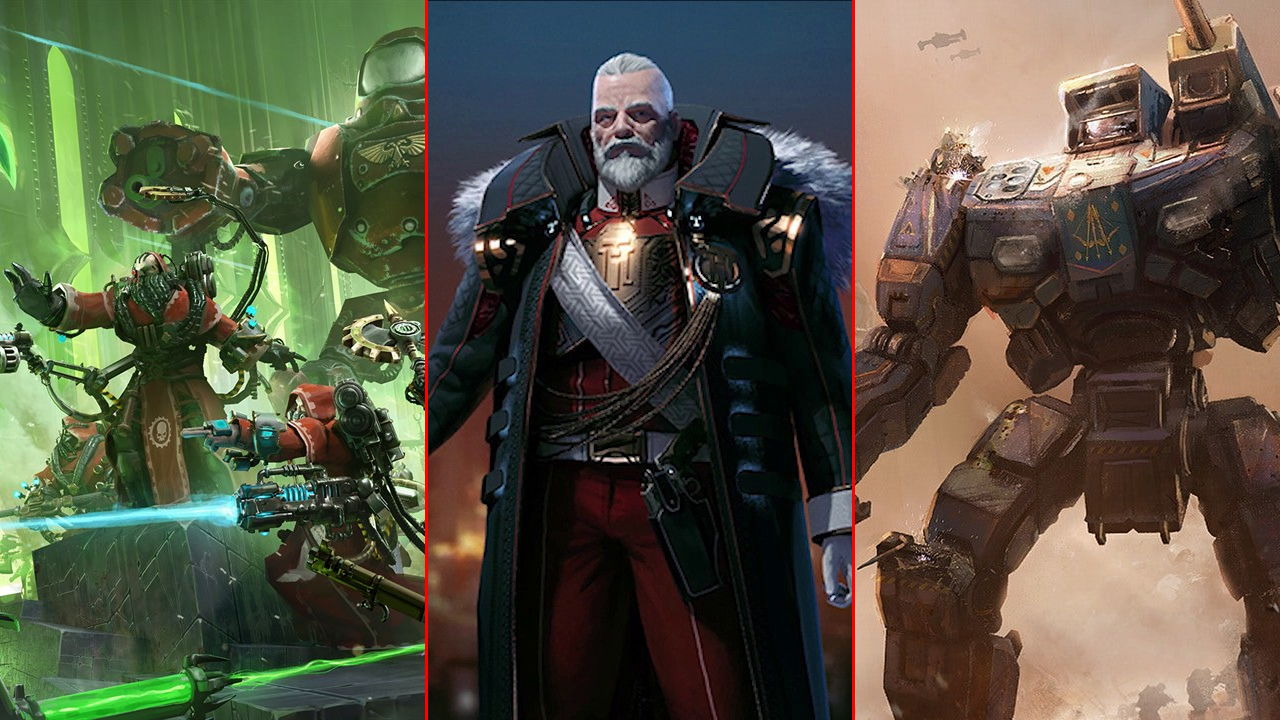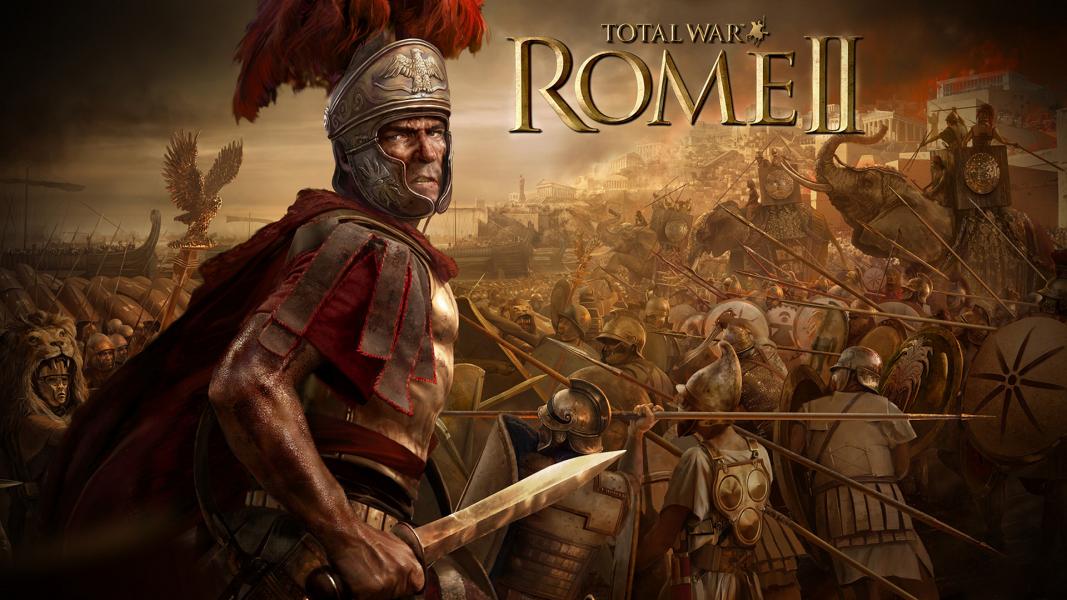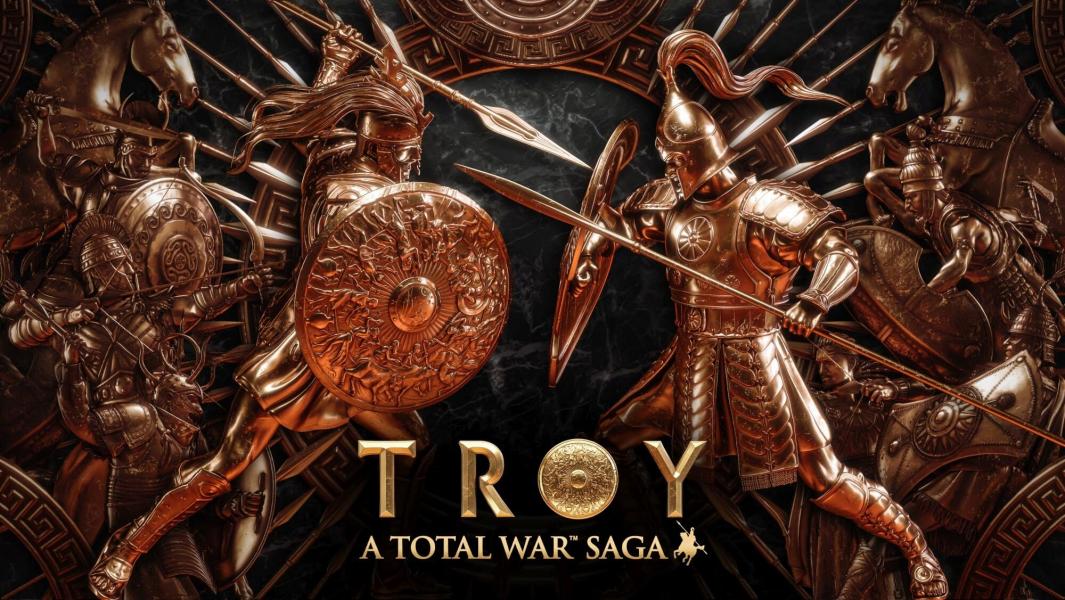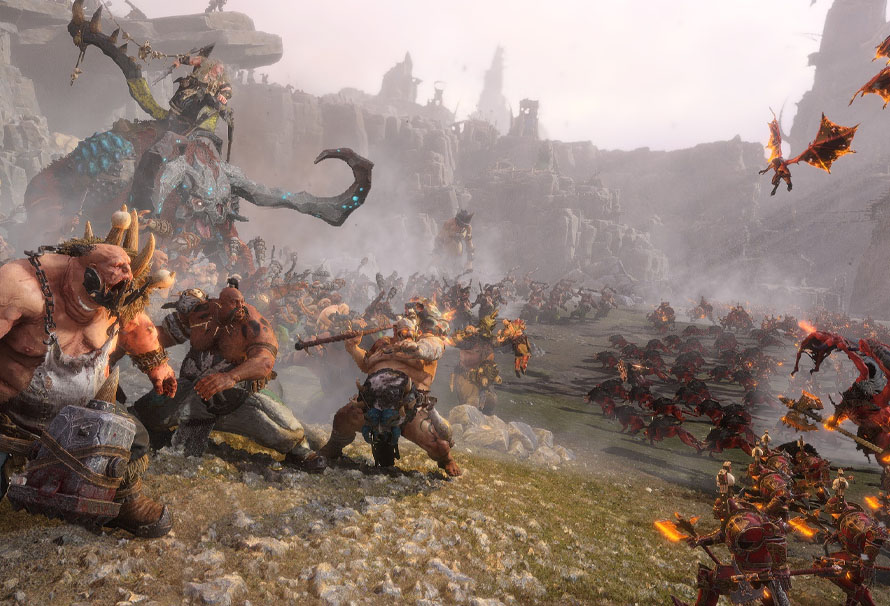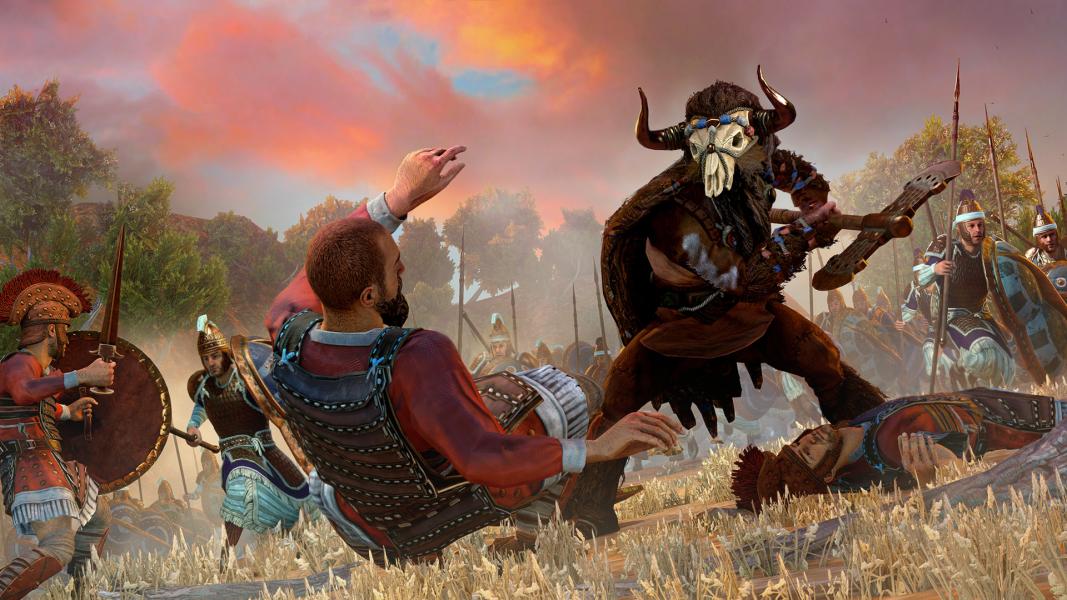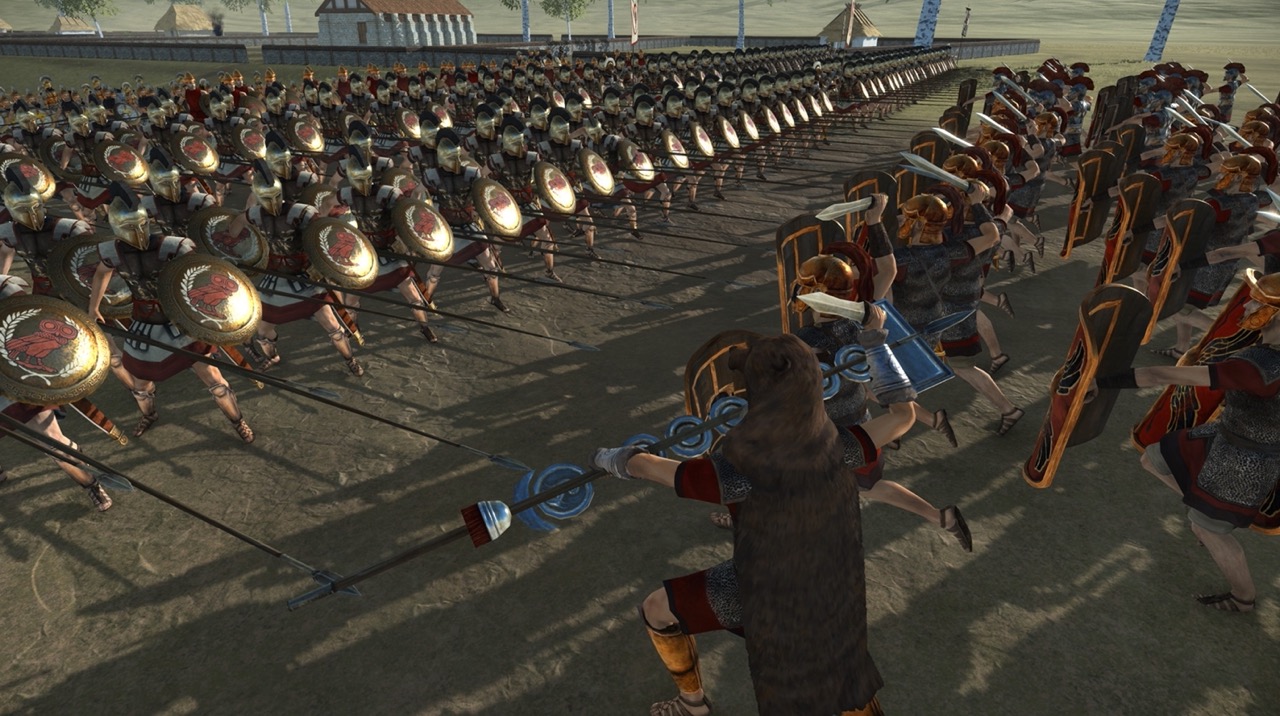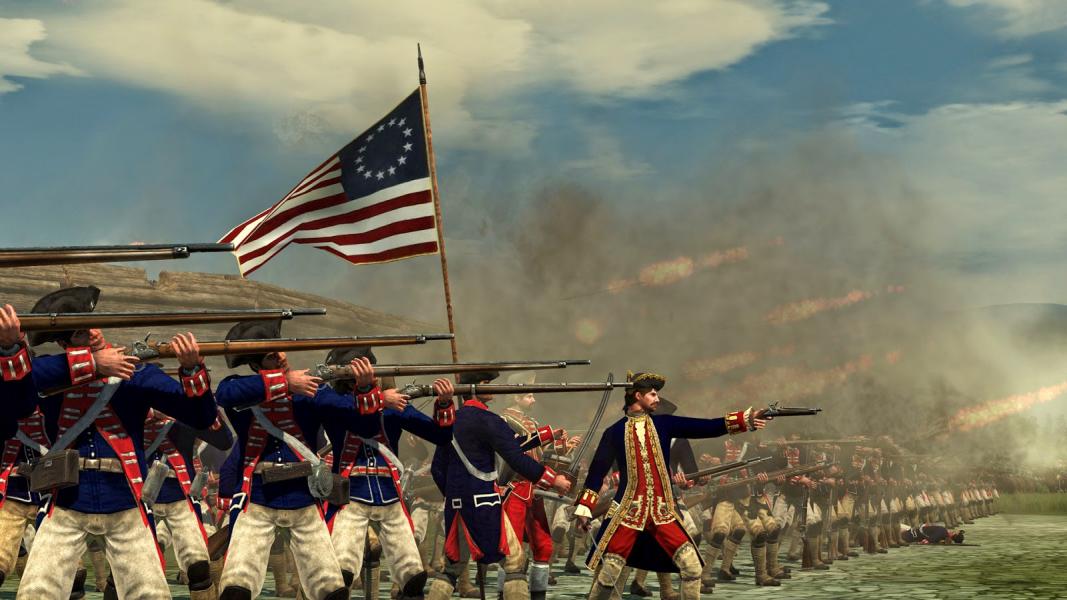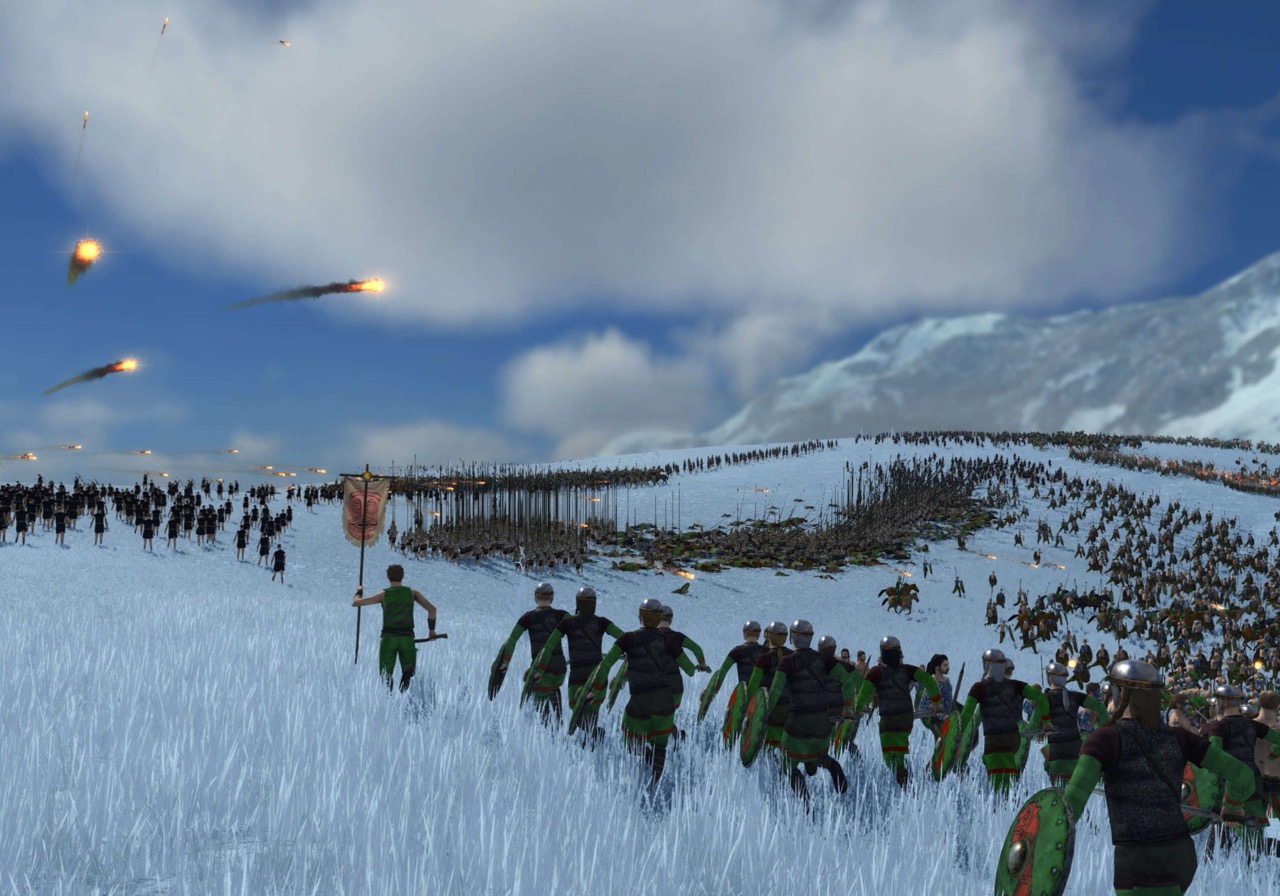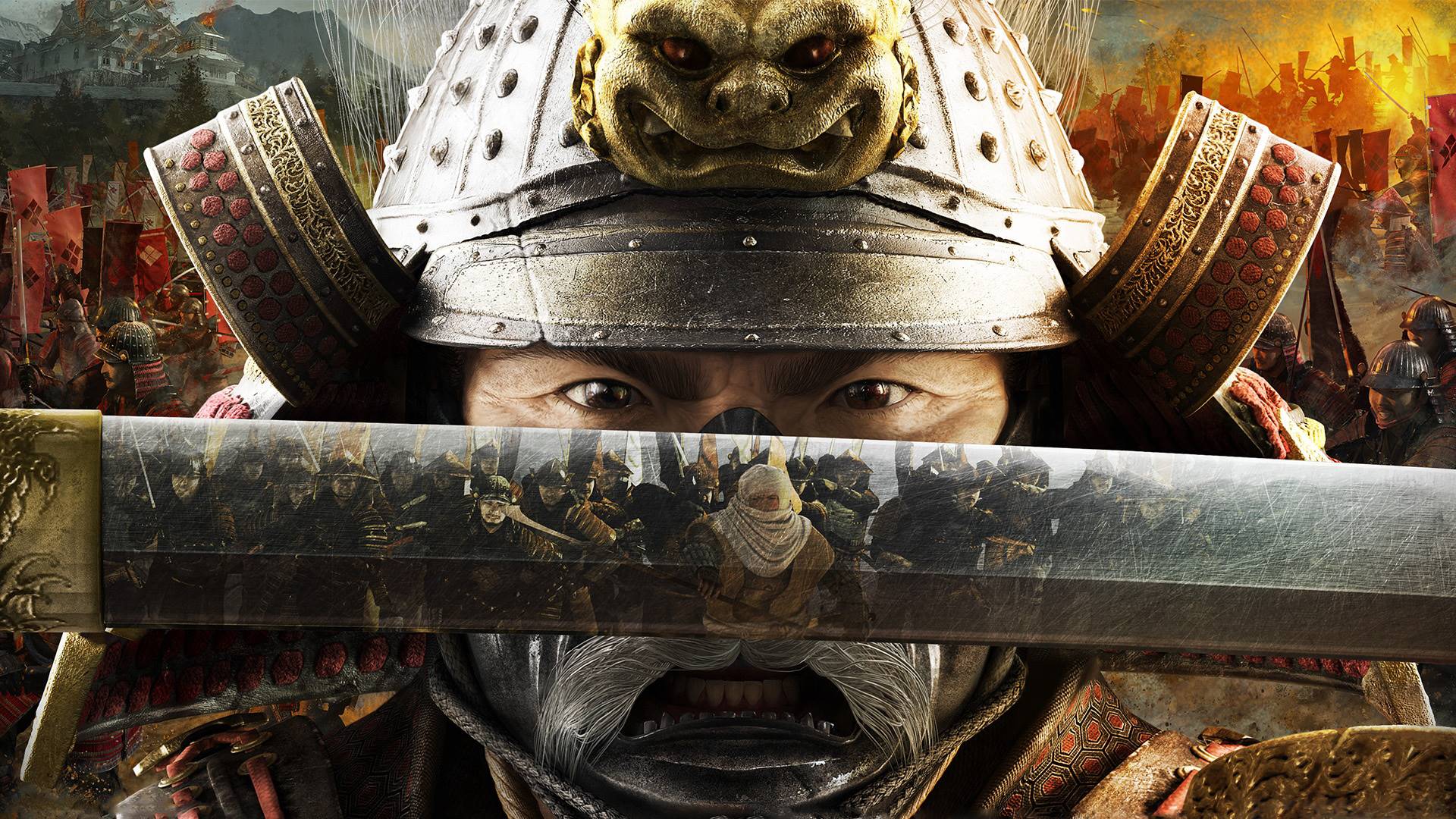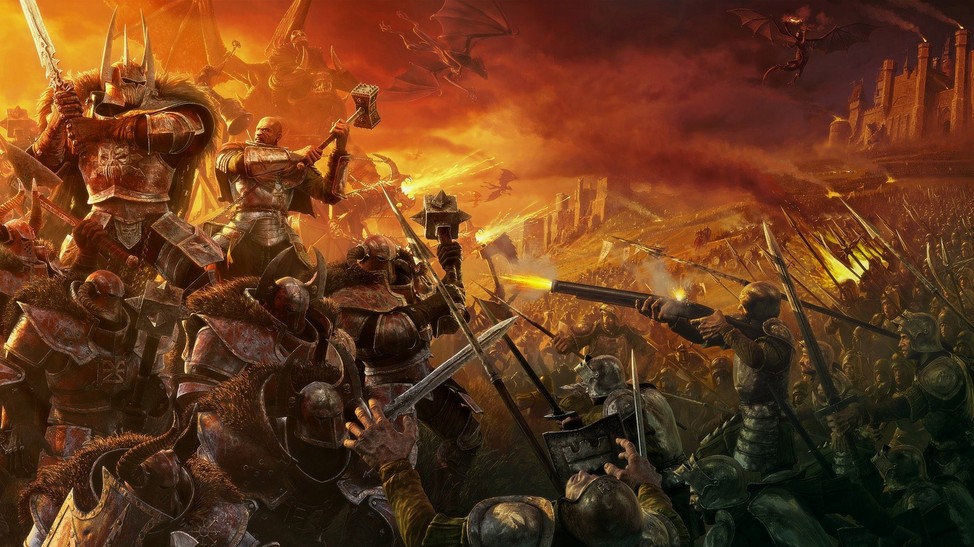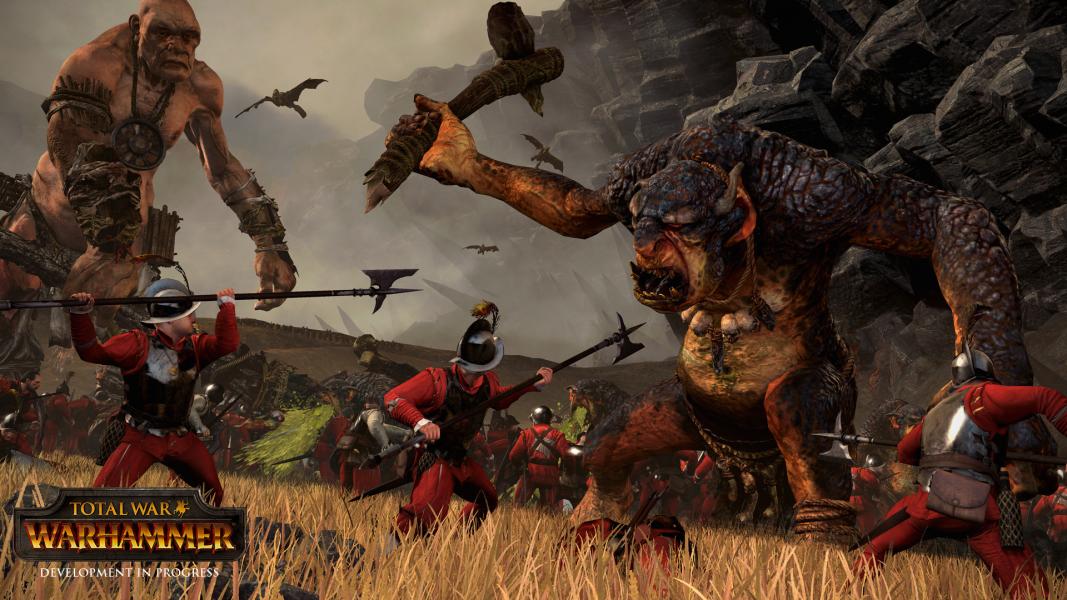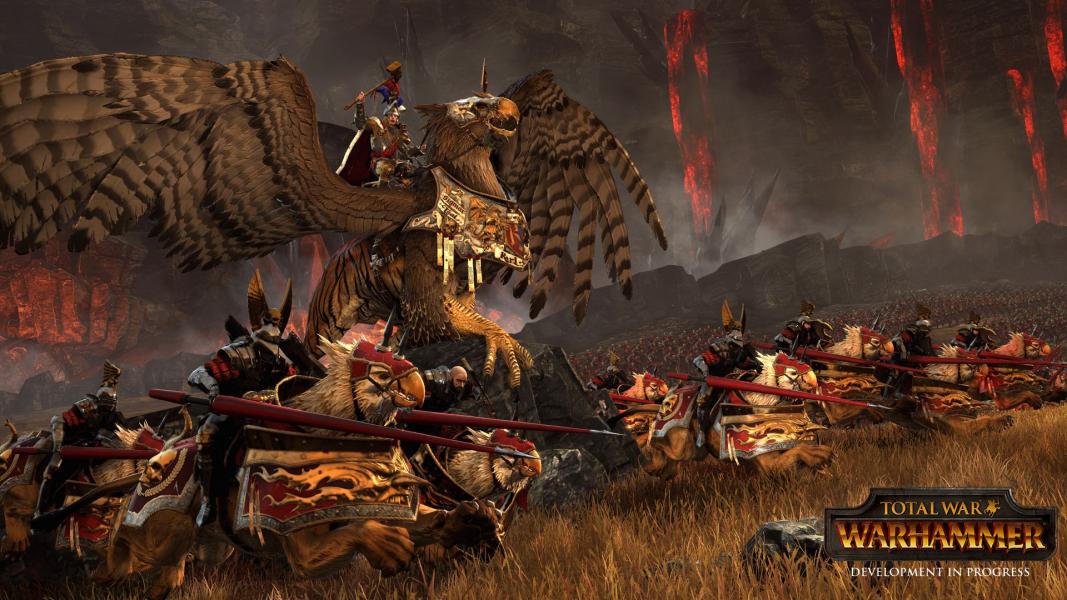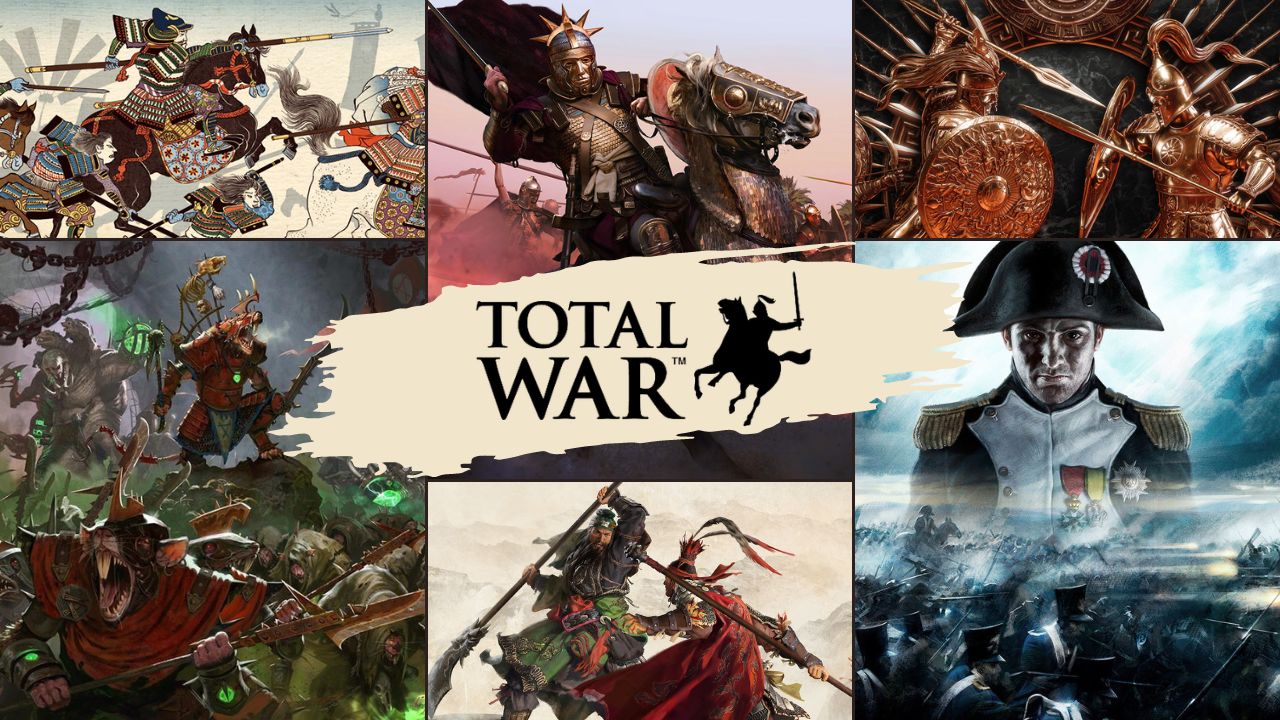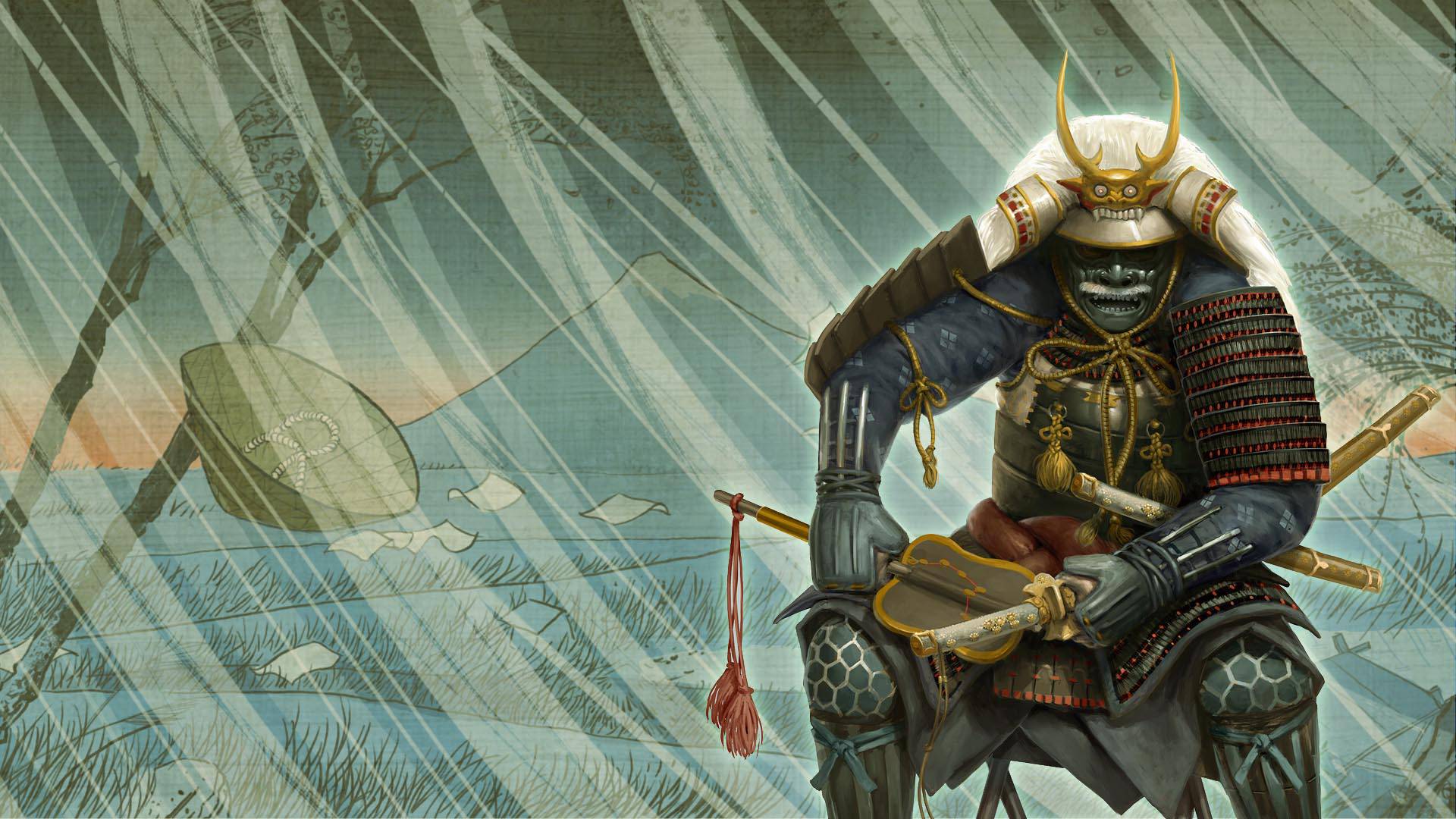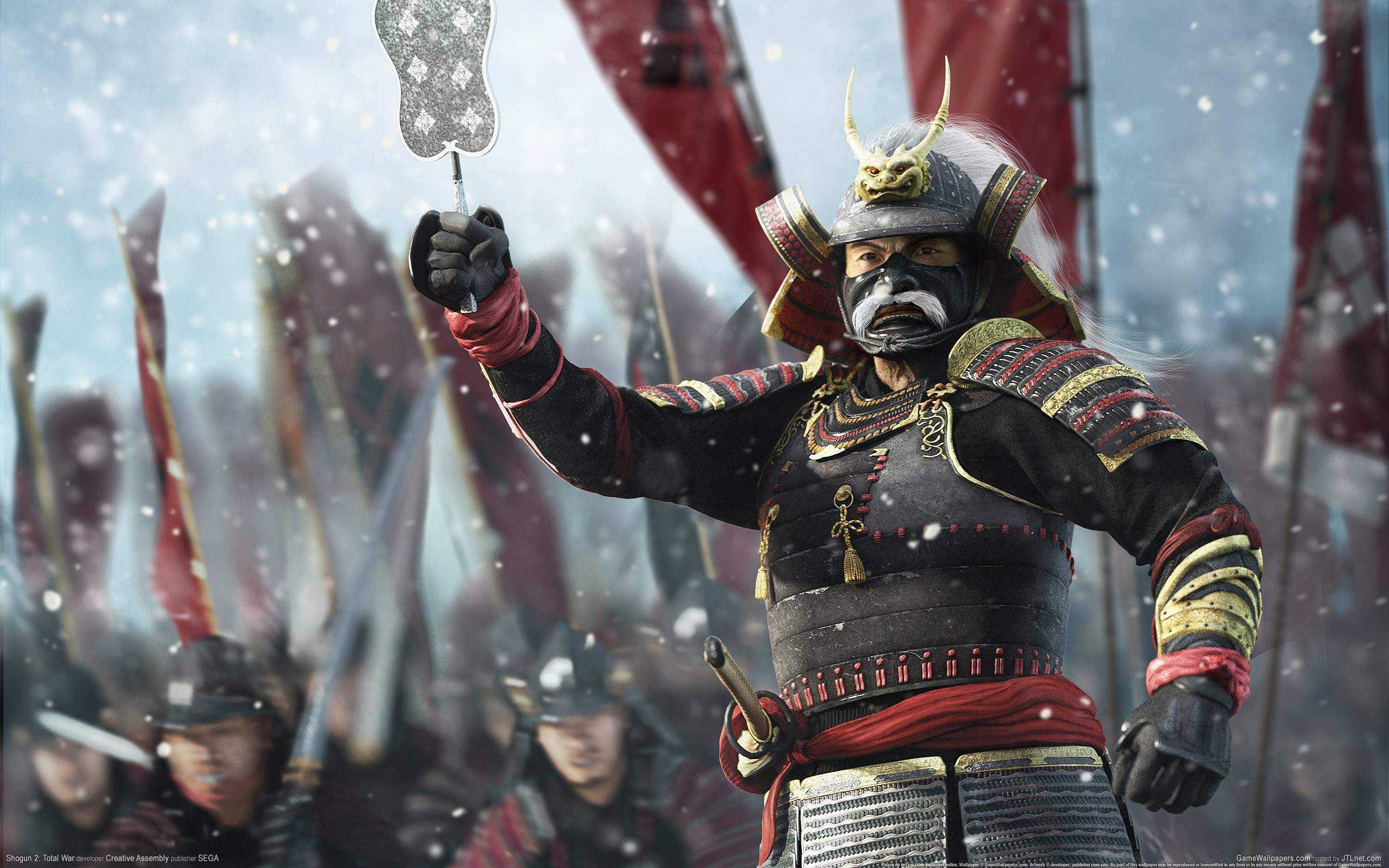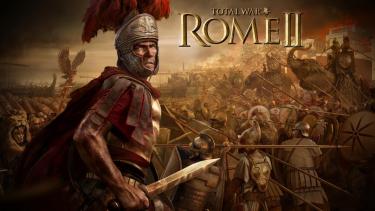
Prepare for bloodshed with our list of all Total War Games released so far!
War is hell. But when waged in the privacy of your own PC, it can be an exhilarating experience.
When it comes to body count, no developer can top Creative Assembly’s, who is responsible for thousands, if not millions of virtual fatalities. Starting with 2000’s Shogun: Total War, the esteemed developer has been chugging out one Total War game after another for over a decade.
All Total War games share the same DNA, with each title consisting of two major areas of gameplay: the turn-based campaign mode, which lets players maneuver their armies across the map, manage their economy and other empire-building activities; and the real-time tactical combat of large scale battles, where players pit their armies against each other or the A.I. So far, the formula has worked, and in fact it’s safe to say that there’s no such thing as a terrible, or even average Total War game.
Still, it’s hard to disagree with fans and ratings, and when it comes down to it, some Total War games are just better than others. Here then, is our list of Total War games for the PC, ranked from best to worst.
1. Total War: Shogun 2
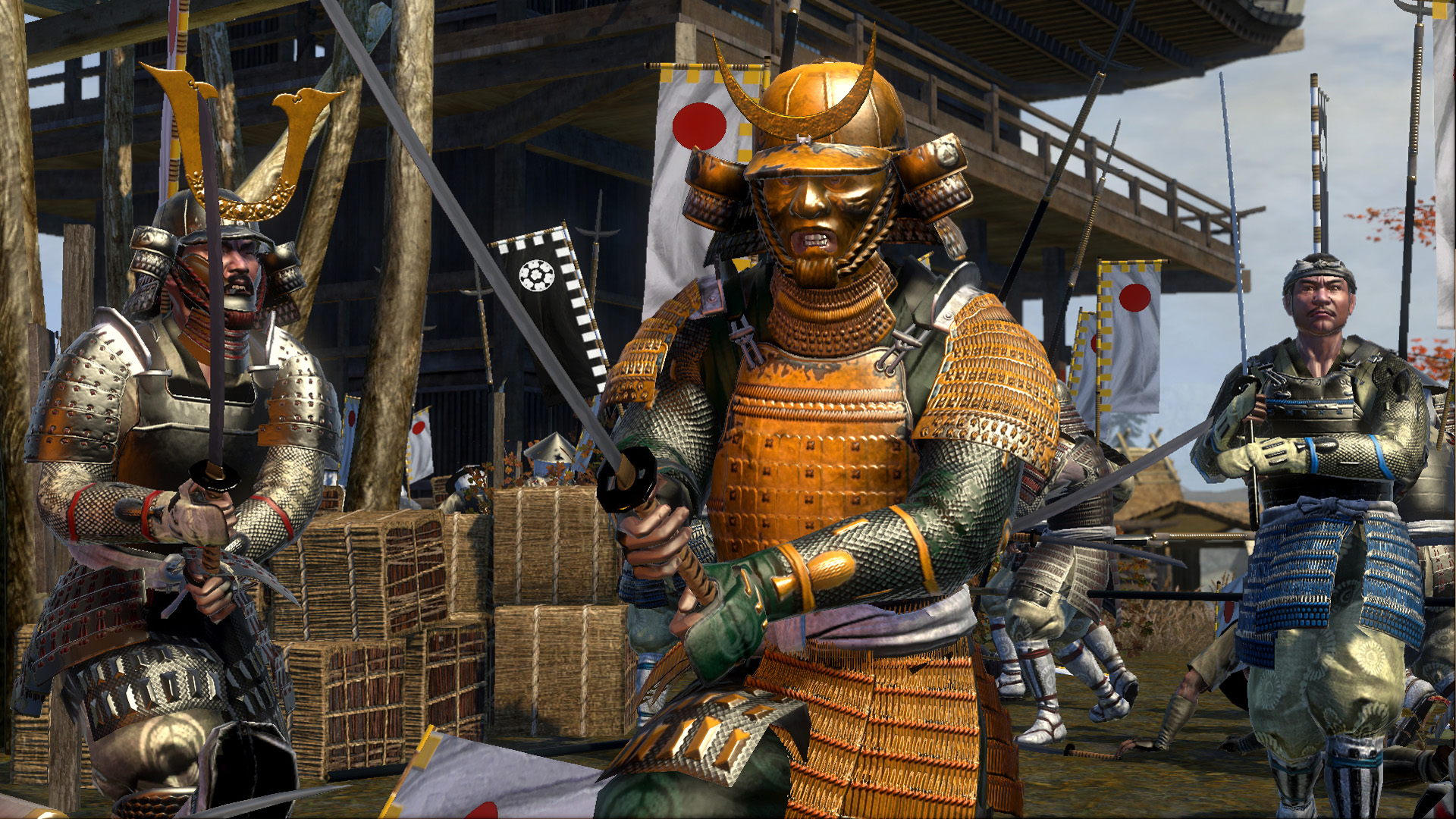
Samurai showdown!
Admit it: there’s a part of you that would give away a rib for a chance to become a badass, katana-wielding samurai in feudal Japan, cutting down your foes like they’re made of butter.
But don’t visit that dubious, back alley surgeon just yet! For few eras in human history are as horrific as 16th century Japan. Set during the particularly brutal Ashikaga Shogunate, Total War: Shogun 2 puts players in the shoes of your chosen clan’s leader and general.
Each of the nine clans has a specialty, including the Takeda clan’s cavalry supremacy, the Hojo clan’s expertise with siege weapons, and the Uesugi’s devotion to Buddhism, which enables them to recruit superior warrior monks.
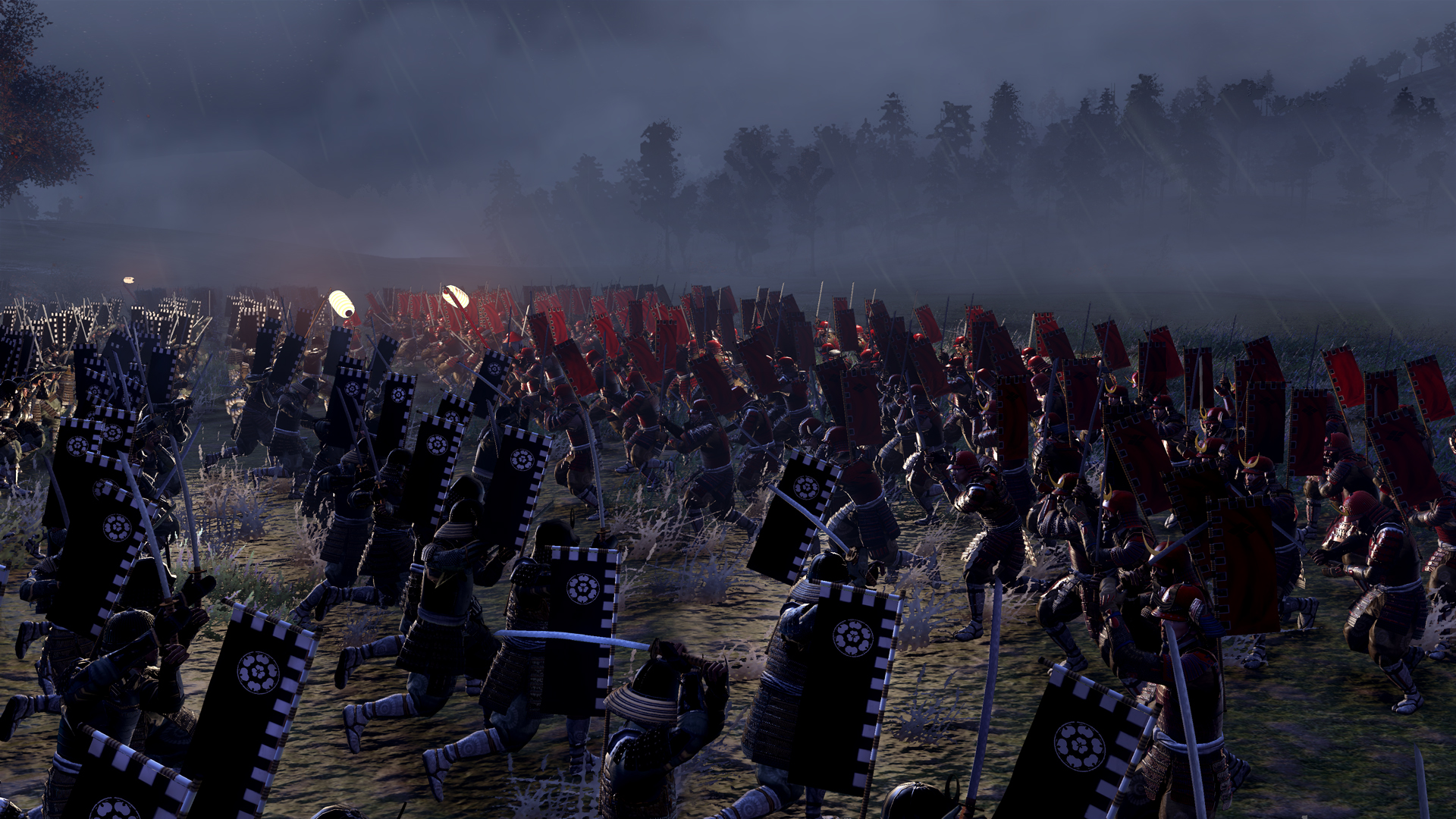
The bloody origins of the mosh pit
As electrifying as watching armies of samurai disemboweling each other is, war is not always about direct confrontation on the battlefield. In Shogun 2, you can use special agents such as geishas and ninjas to act as spies and assassins, while priests and monks can convert the enemy to your side.
Shogun 2 does receive some flak as a simplified iteration of the series. For instance, there isn’t much micromanagement compared to other Total War games. Units also lack variety.
But still. Samurais. Warrior monks. Ninjas. What’s not to love?
Our rating - 5/5
2. Rome: Total War
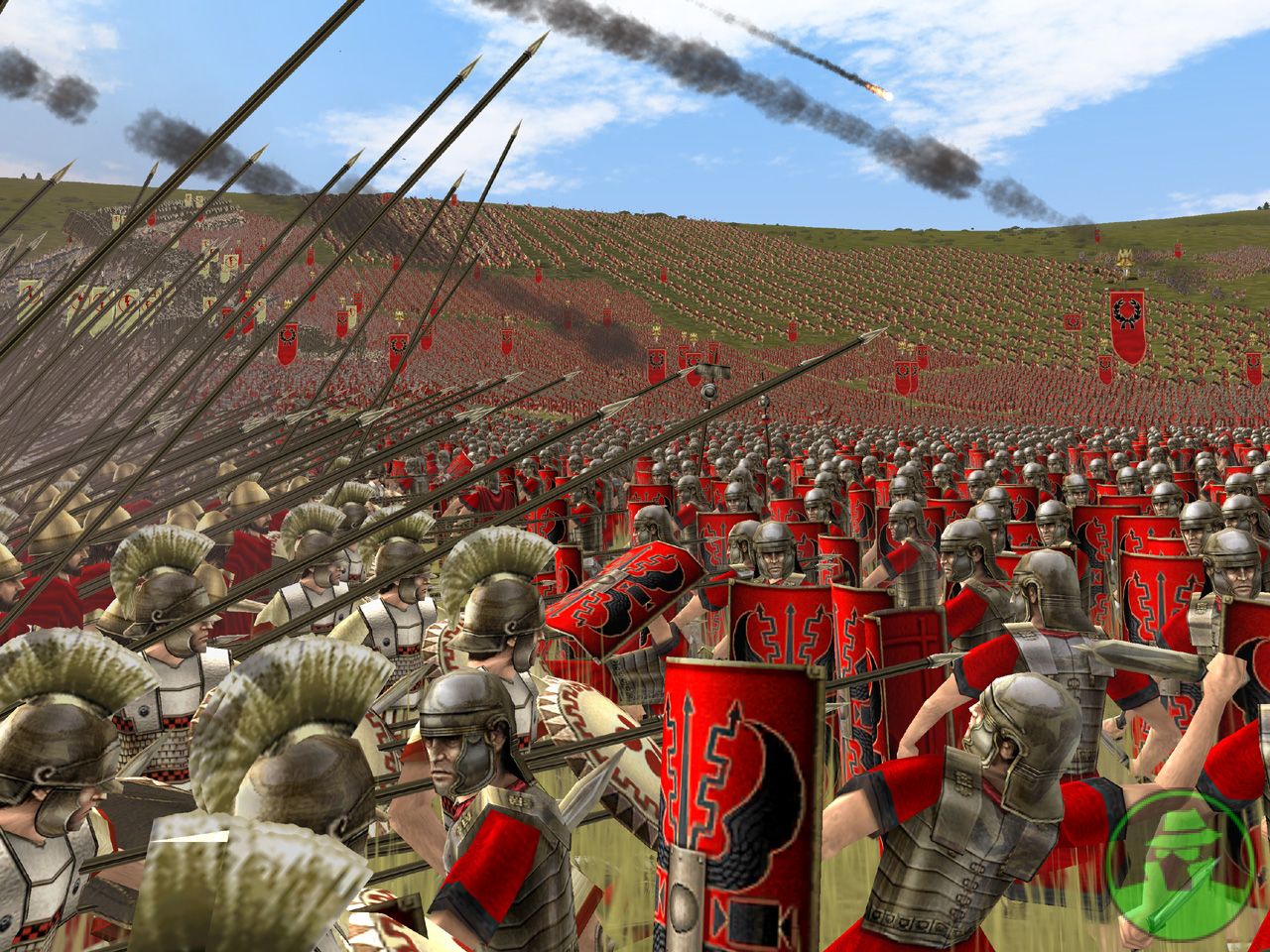
Fields of slaughter (Image from TWCenter.net)
Rome’s armies may be into wearing skirts and sandals, but these are, arguably, history’s most effective and successful military juggernauts. So it’s no surprise Creative Assembly chose to set their third entry in the Total War series in the early Roman Empire.
You take the role of the head of any of three Roman houses: the Julii, Scipii, or Brutii. Like in Shogun 2, each faction has unique strengths and weaknesses. Completing the campaign isn’t as simple as annihilating all opposition; in addition to conquering 50 provinces, players must also win over the people. Treat a city’s population poorly, and they can turn hostile, becoming their own rebel faction.
Family members also assume significant roles in Rome, acquiring different attributes which can influence your game in various ways.
Many fans of the Total War games would rate Rome: Total War very high on their list, and for good reason. In Rome, all these disparate gameplay elements just work smoothly together to form one, cohesive strategy epic that is as historically immersive as it is a blast to play.
Our rating - 5/5
3. Total War: Attila
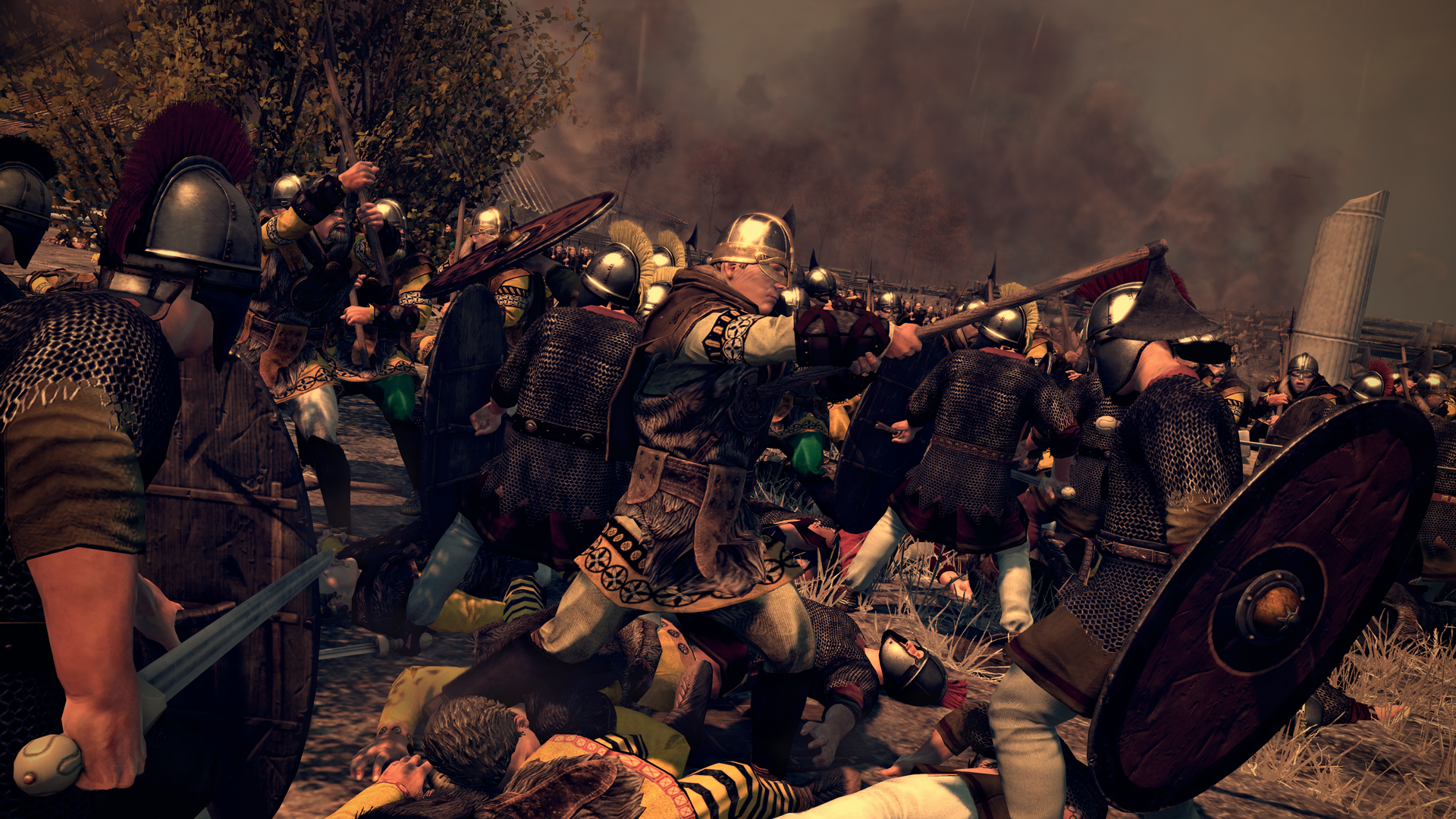
Massacre in the making
Total War: Attila, released only this February, is the latest Total War game. Set in 395 AD, it traces the rise to power of one of history’s most fearsome rulers: Attila of the Huns.
As the ninth Total War game, Attila boasts several improvements to the A.I., user interface, graphics, storytelling, sound design, and the management of armies. In fact, every feature introduced in earlier titles have received significant enhancements in Attila. One old feature, first introduced in an expansion for Rome: Total War, is the Horde faction. In Attila, this feature takes center stage.
Several factions, including the Huns, start as Hordes. Hordes are nomadic, meaning they don't start with a capital or province. This gives them greater mobility, and a variety of other perks. For instance, sanitation isn't exactly their priority, so they don't have to clean up after themselves (gross). They also gain a majority of their profits from sacking and pillaging settlements, and from tributes from certain states. This forces them to keep moving from region to region, to find new settlements to raid.
Playing a Horde faction is a drastically different experience from the usual stationary faction, making Attila an excellent change of pace from earlier titles.
Attila has also been lauded for its accurate portrayal of the time period. True to the violent, dismal era in which the game is set, Attila is steeped in an apocalyptic miasma, complete with inclement weather and gloomy lighting.
Our rating - 5/5
4. Empire: Total War
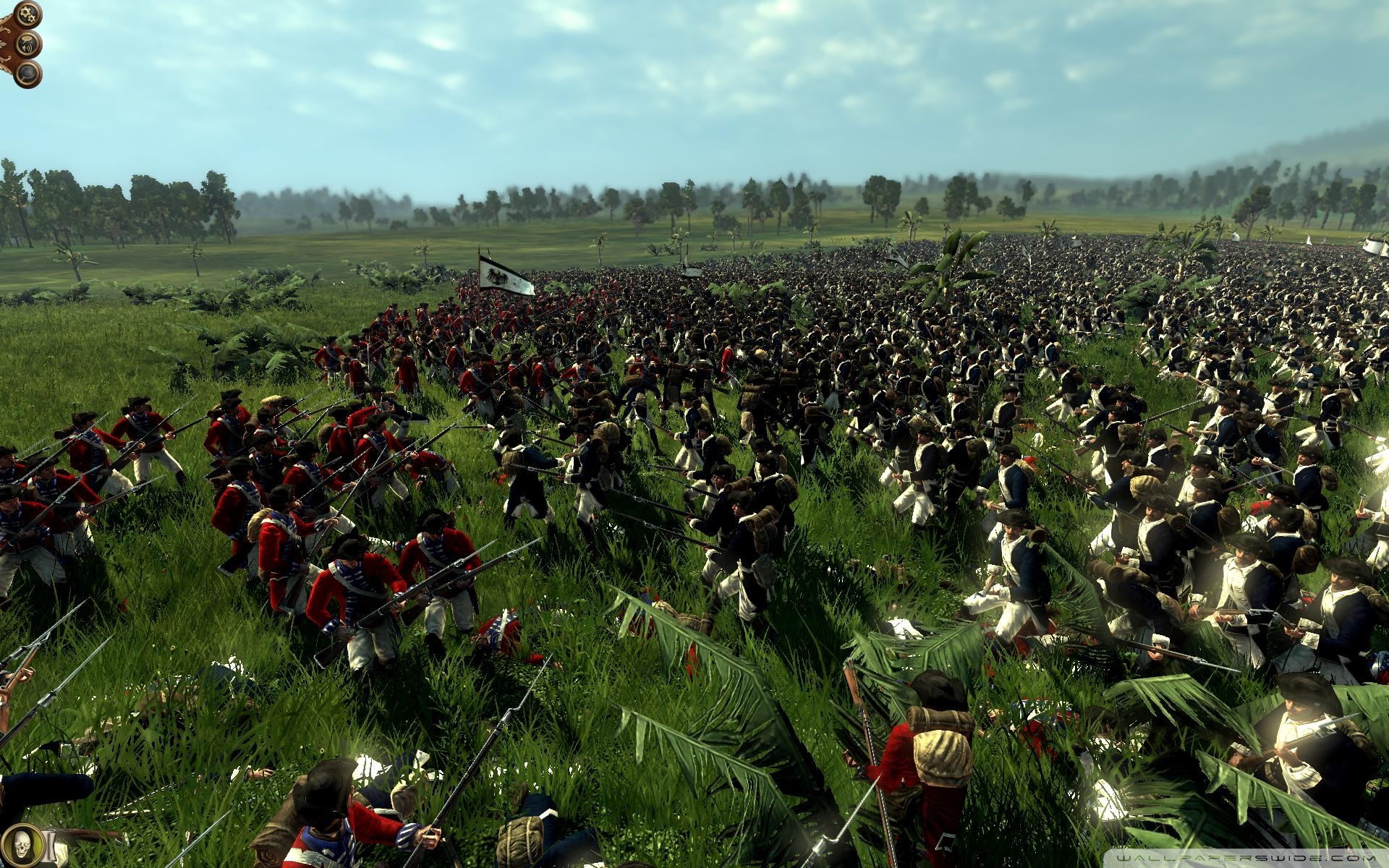
More guns than a Borderlands game
Empire: Total War focuses on the 18th century, which of course means one thing: gunpowder. But Empire has not only been praised for its gun-toting units, but also for the accuracy of its historical battles, strategic elements both on and off the battlefield, and its humongous scale, which spans from Europe and West Asia all the way to the New World. Some of the factions include Great Britain, Russia, the Ottoman Empire, the United States, and Native American tribes.
The game is not without its problems, and has been criticized, often quite heavily, for bugs, A.I. problems, and its naval battles.
Our rating - 5/5
5. Medieval II: Total War
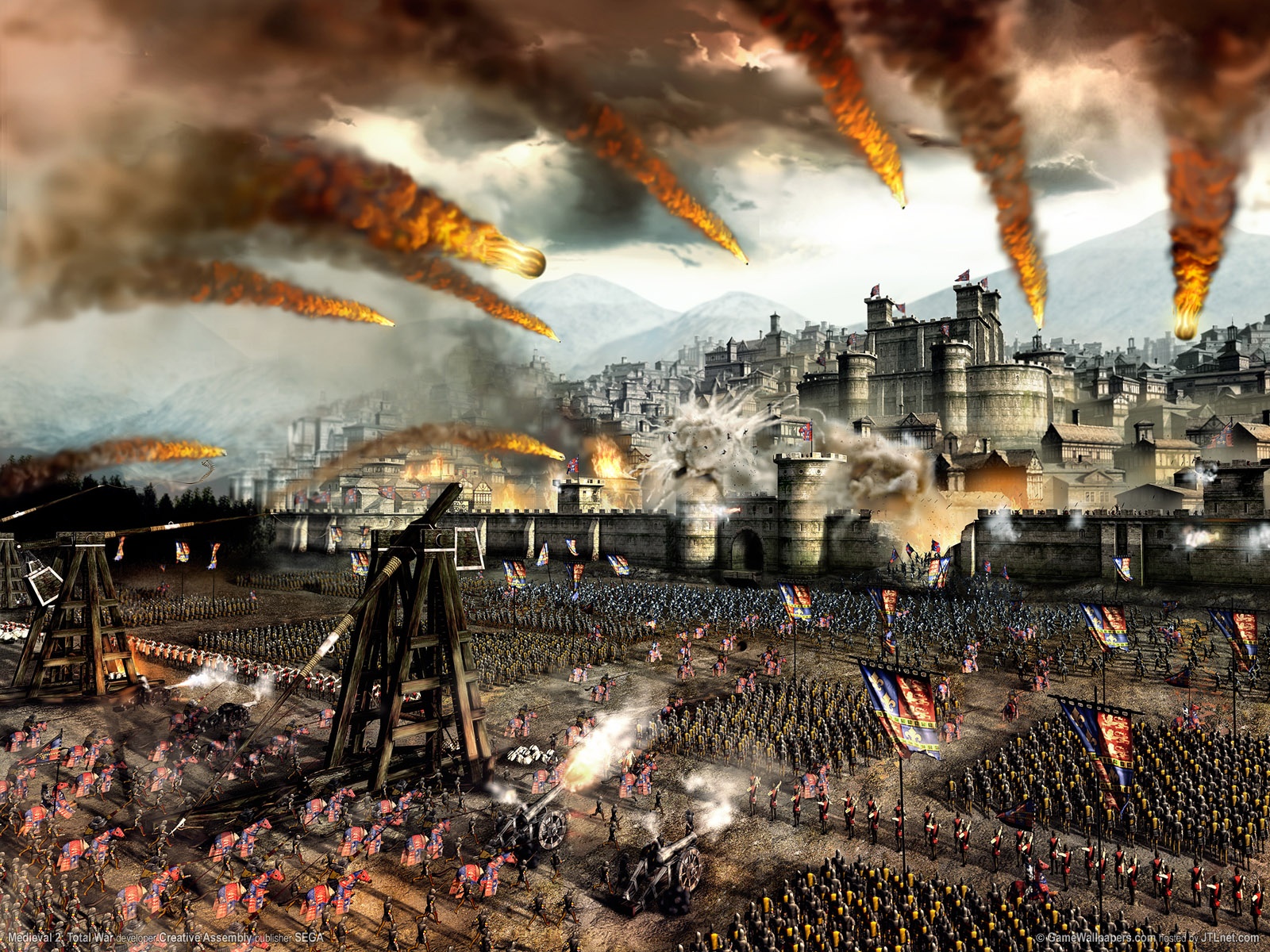
Rain of fire
If you like your armies clad in nice, shiny armor like the Knights of the Round Table, then you can’t go wrong with Medieval II: Total War.
The Total War games’ fourth title takes place between 1080 and 1530, and puts Europe, the Middle East, and North Africa in the spotlight. It boasts a whopping twenty-two factions, although only five are available in the beginning, and only seventeen are included in the campaign mode. The starting factions are the Holy Roman Empire, the Republic of Venice, England, Spain, and France. The rest, such as the Byzantine Empire, Egypt, the Moors, Hungary, Scotland, and Portal, have to be unlocked.
The game features several graphical upgrades over its predecessors, including motion-captured attack animations, randomized unit appearances, and bloodied uniforms.
Religion plays a deeper role in Medieval II than in some of the other Total War games. For one thing, you can become the Pope and initiate the Crusades against certain enemies. And who doesn’t want to become Pope?
Medieval II is known for having a much darker tone than other titles in the franchise, which is appropriate, given the turmoil in the particular centuries the game is set.
Our rating - 5/5
6. Napoleon: Total War
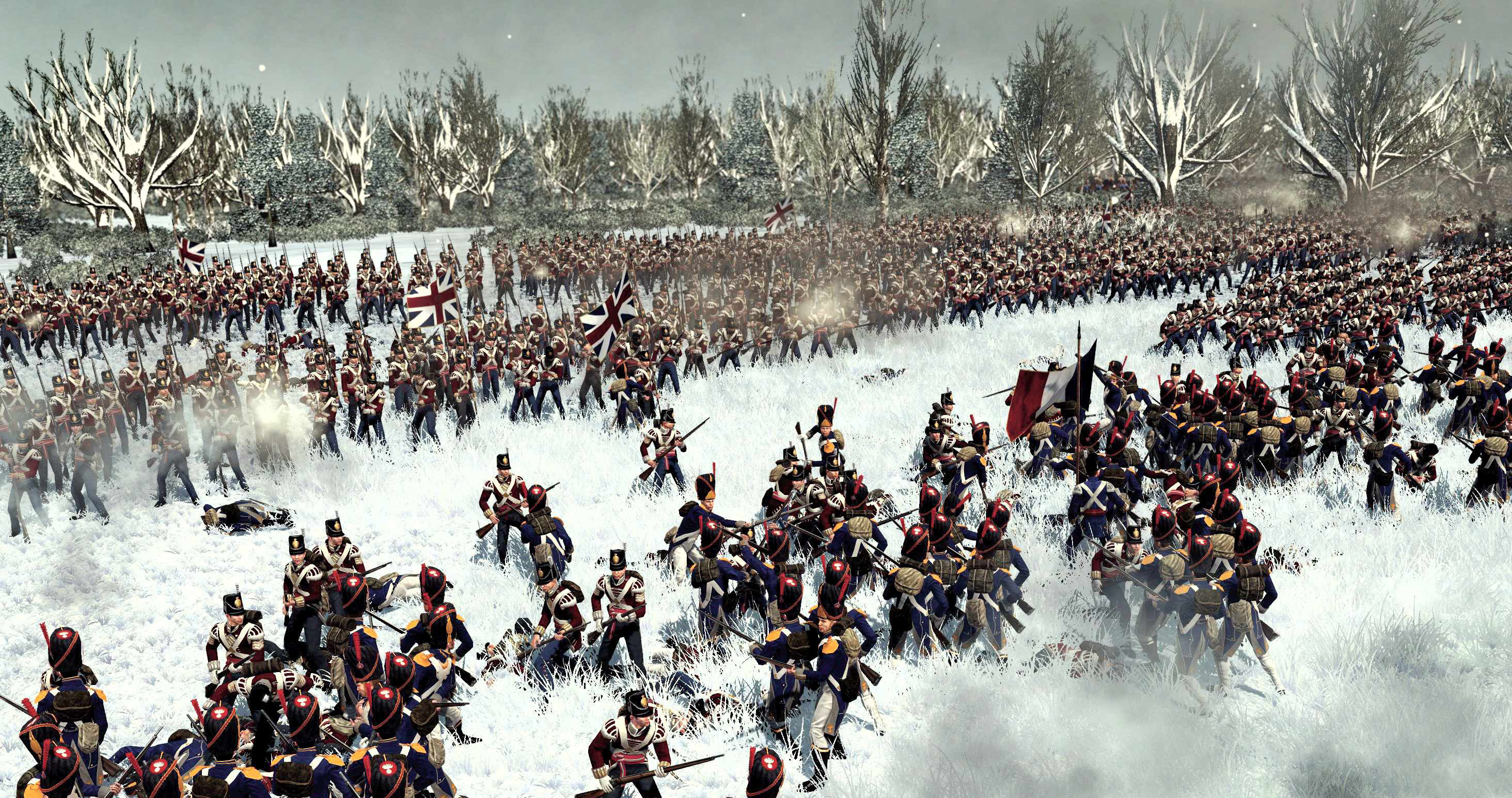
Red vs. Blue
Napoleon: Total War is special in that it has a tighter focus on Napoleon Bonaparte and his exploits – which has become its best feature, as it allows players to participate in a more personal and cohesive story.
This is also the first entry in the series where your armies are affected by extreme weather conditions such as the freezing temperatures of snowy regions, and the scorching heat of deserts - adding an entire new level of strategy to the series.
While Napoleon’s campaigns are more compelling due to their story-driven nature, it also means the game’s central conflict is much smaller scope than in other Total War games - which some fans have taken issue with. Oh well, you can't please everybody.
Our rating - 4/5
7. Total War: Rome II
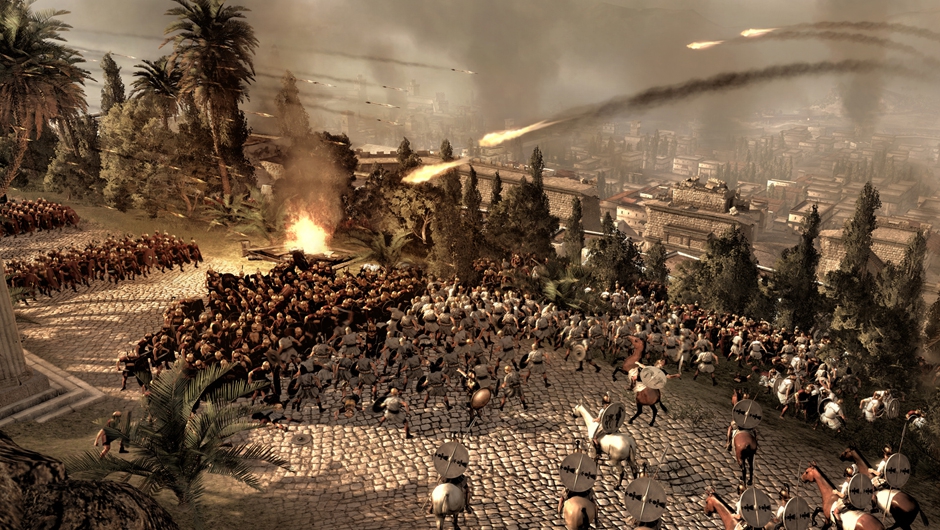
Urban warfare
When it comes to games, it’s not often that a sequel is trumped by its predecessor. But that is exactly what happened to Rome II.
While still a good game in its own right, its release was mired by a slew of technical issues.
On the plus side, it sports vastly improved visuals, even allowing the camera to close in on units to show the horror on individual faces when their comrades get slaughtered. This gives Rome II a sense of personal drama the earlier Total War games lack.
There are more battle types in Rome II, as well. Some combine land and naval battles, while others include sieges, ambushes, and river battles.
Our rating - 4/5
8. Shogun: Total War
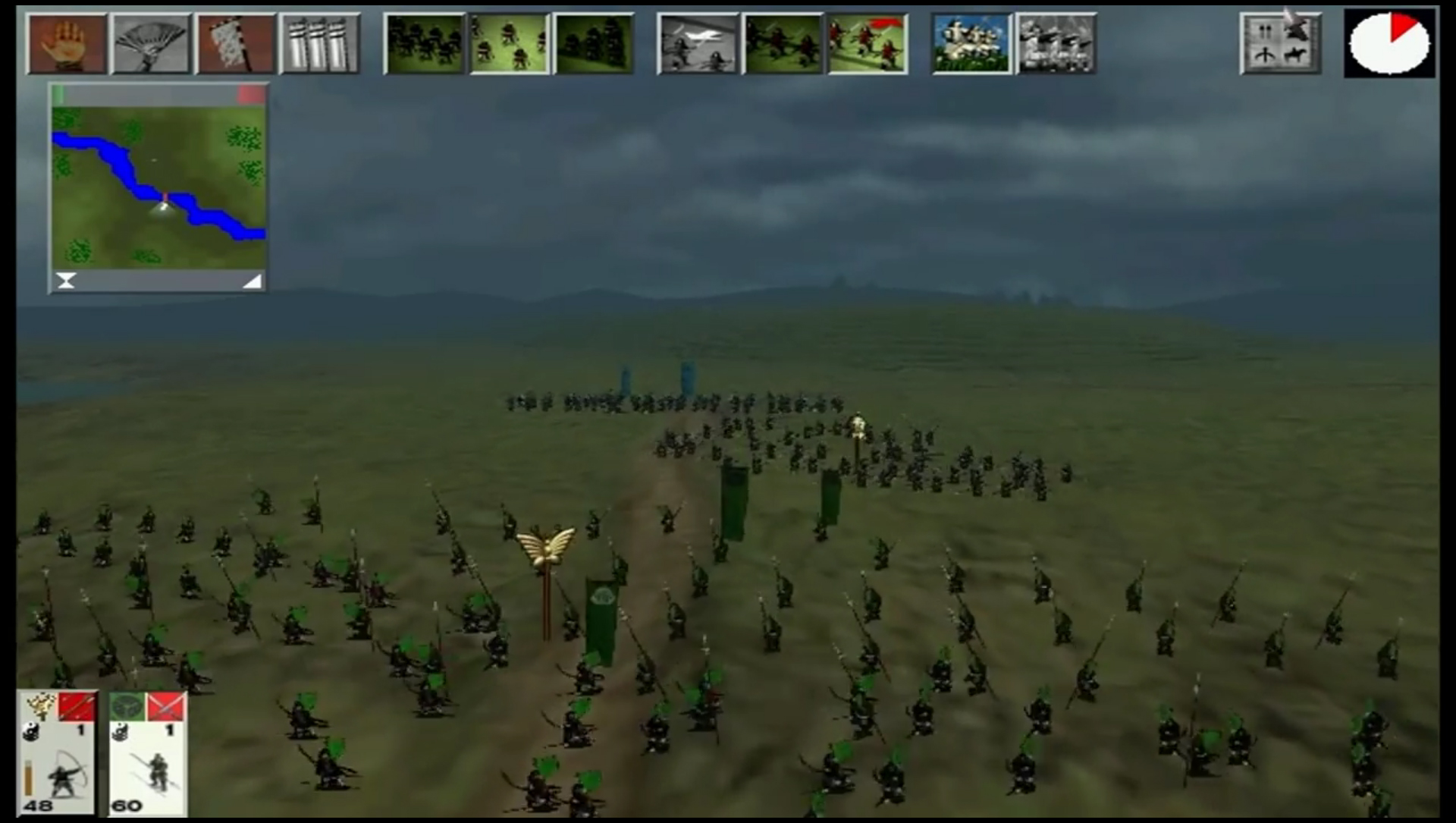
Little army men
The very first Total War game was none other than 2000’s Shogun. Set between the 15th and 17th centuries, you assume the role of a daimyo whose goal is to conquer the entirety of Japan using a combination of military strength, trade, espionage, diplomacy, and religion.
Though its 2D sprites and quick, simple battles may not have aged too well, Shogun was a technical masterpiece during its time. Today it is renowned as the title that kicked off the landmark series.
Our rating - 3/5
9. Medieval: Total War
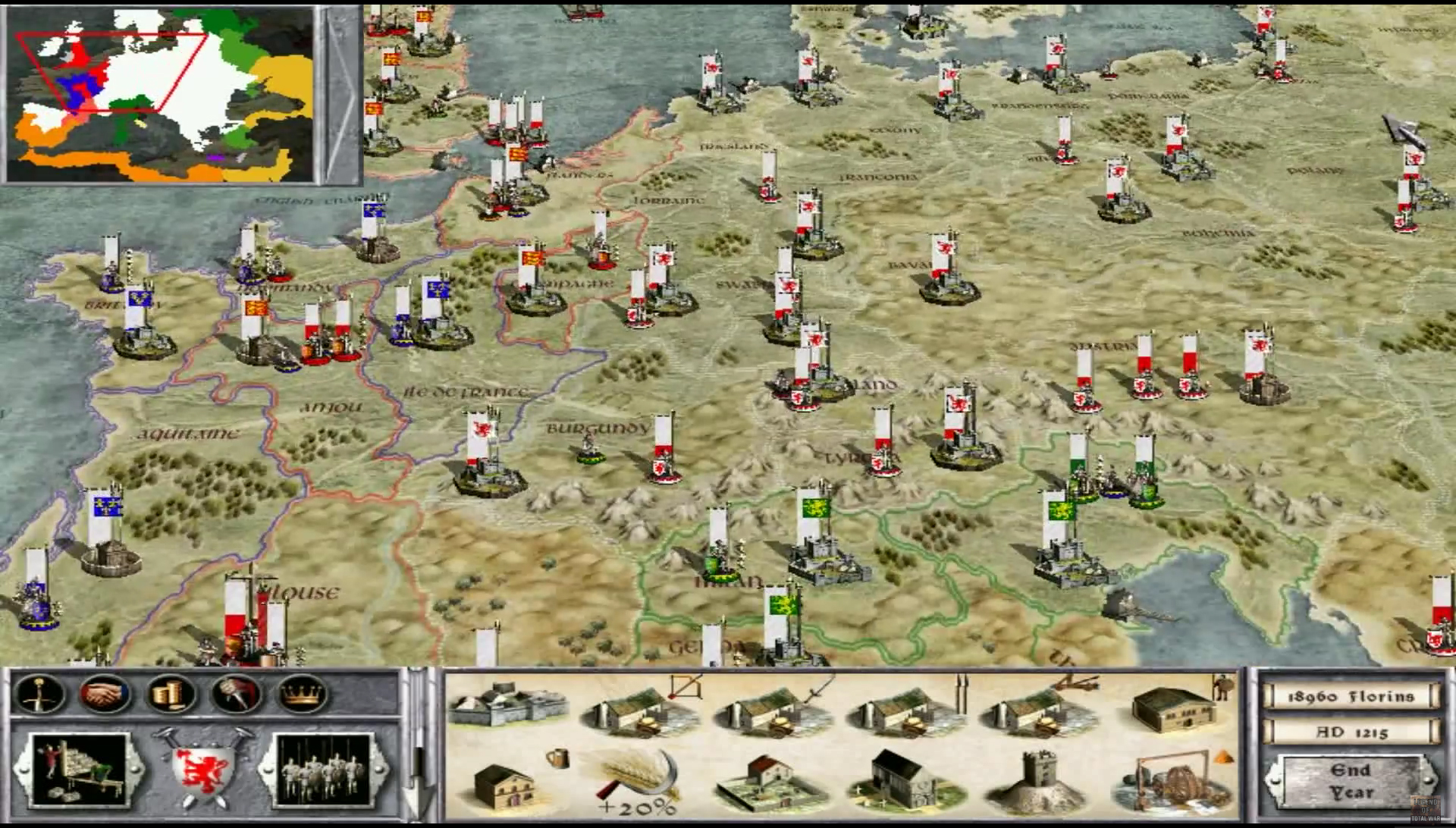
Like Chess, only with more blood
The second game in the series, Medieval: Total War was both a critical and financial success. It is acclaimed for its historical accuracy, as well as the depth of its strategic gameplay.
Medieval is also the first Total War game to feature siege battles.
Despite being an excellent game, Medieval has been upstaged by its superior sequel, so there’s little point to playing it once you’ve experienced Medieval II. Also, like Shogun: Total War, the game is old. By today's standards, it's not exactly the prettiest game on the market.
Our rating - 3/5
And so we come to the end of our list of Total War games, ranked from best to worst. It’s totally understandable if not everyone agrees with it. So let us know your opinions! Do you think this ranking is spot on? Or do a few games deserve to be higher, and some lower, on the list?

